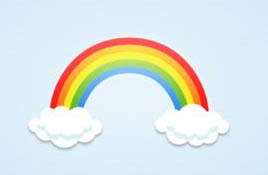《参考消息》2007年3月28日第15版:西方古典音乐在中国升温
【英国《金融时报》2007年3月25日文章】题:西方古典音乐在中国升温
With strings attached
By Barbara KohAway from the rumble of Shanghai’s highways and thecacophony[1]of the shopping districts, stroll down side streets filled with rows of tall brick houses. In the early evening or on a weekend morning, you’ll hear the sound of classical music drifting from a piano, played by a 10-year old or a grandmother in her seventies. Wander down another alley toward drab high-rises and you’ll hear Beethoven or Mozart flowing from a violin, or perhaps a cello, accordion or flute. (1)In China, classical music is booming as mightily as the 1812 Overture. It’s fortissimo[2] in Shanghai, forte[3] in Beijing and other lively cities, and on a crescendo[4] in farther-flung areas.
One London reviewer trumpeted: “China has become a classical music force to ber________①with.” China’s classical music renaissance is a product of its roaring economy. In order to project an ultra-modern culture to match their economic success, Chinese cities have been erecting extravagant 1,000- and 2,000-seat theatres, designed by renowned architects. Meanwhile, upwardly mobile families are investing heavily in their children’s cultural development.“_______________________(人们一旦衣食无忧,就需要提高精神方面的修养。),”says Zhao Zengmao, director of the Shanghai Conservatory of Music’s social education division. “Advanced countries all recognise that the arts are important.” Wei Chongde, founder of the Shanghai Fugim Violin Company, had his teenage son begin piano at age five, and cello two years later. “I want to cultivate [him] to be patrician,” says Wei. “If you go to a concert and can’t understand it” - you applaud at thew_______②time, or don’t know how to talk about the music afterward - “it’s embarrassing.”Wei’s son owns most of Yo-Yo Ma’s CDs, practises at least an hour every day and takes weekly lessons with the Shanghai Symphony Orchestra’s first cellist. Aside from self-improvement, there are pragmatic reasons to jump on the classicalbandwagon[5].Yo-Yo Ma, along with Deutsche Grammophon’s two young piano sensations Lang Lang (who at 17 played with the Chicago Symphony Orchestra as a last-minute substitute for Andre Watts) and Li Yundi (at 18, the youngest winner in the 80-year history of the international Frederick Chopin piano competition) are worshipped like rock stars. (2)Parents imagine their children playing their way to similar riches. Short of that, musically skilled kids get bonus points in the pressure-cooker competition to get into good universities and high schools.Chinese parents also want their offspring to enjoy what they themselves could not. During the Cultural Revolution, classical music was banned. Now, of course, they can indulge: not only in Chopin, Lizst and modern composers such as Tan Dun or Charles Ives, but also in rap, jazz, funk, blues and Chinese traditional forms. (3)Yet tickets to hear well-known classical musicians in the modern, grand theatres can be prohibitively expensive; most classical music fans have to make do with listening to CDs at home.In mountainous, rice-growing Guangxi, Peng Yingxue began piano lessons when she was four. She caught thee_______③of a Shanghai Conservatory teacher who visited her kindergarten; at nine, she entered the conservatory (which accepts only 18 per cent of applicants). Her father quit his clerical job and moved to Shanghai to look after her; her mother, an office assistant, sends money from home. Peng, 15, recognises that her parents have made this sacrifice for the sake of her future. “Some people think girls are only suitable for ordinary jobs, such as being secretaries,” she says.“____________________________________.(一项特殊技能会给你带来更好的前途、收入和生活,选择空间也会更大。)”The piano is the instrument of choice in China’s classical boom. In 2002, about 600 amateur pianists took the Shanghai Conservatory’s assessment exam; this year, the number was 8,000 - perhaps because a piano requires slightly less dexterity and physical development than, say, a violin orclarinet[6].Zhao says that even senior citizens can pick it up - and about 10,000 in Shanghai have, many inspired by their grandchildren.NOTES:
[1]cacophony n.[U, C usu sing 通常作单数] loud unpleasant mixture of discordant sounds 响亮而不和谐的声音; 刺耳的声音.
[2]fortissimo adj,adv (abbr 缩写 ff) (music 音) very loud; (to be) played very loudly 最强音(的); 用最强音演奏(的)
[3]forte n(usu sing 通常作单数) thing that sb does particularly well; strong point 某人擅长的事; 长处; 特长: Mathematics was never my forte. 数学一向非我所长. adj, adv (abbr 缩写 f) (music 音) loud; (to be) played loudly 强音(的); 用强音演奏(的)
[4] crescendo n.(pl ~s) 1 (music 音) gradual increase in loudness (音量的)渐强. 2 (fig 比喻) climax; high point 高潮; 顶点: The advertising campaign reached a crescendo at Christmas. 在圣诞节期间, 广告战已达到高潮.
[5]bandwagon n.(idm 习语) climb/jump on the `bandwagon (infml 口) join others in doing sth fashionable or likely to be successful 赶浪头; 赶时髦; 随大溜.
[6]clarinet n.竖笛, 单簧管, 黑管试一试:
1.根据首字母提示和译文,填入适当单词:
①China has become a classical music force to ber________with.(中国已经成为古典音乐领域一股不可小视的力量)(过去分词)
②applaud at thew_______time(在不该鼓掌的时候鼓掌)(形容词)
③She caught thee_______of a Shanghai Conservatory teacher(她的琴声打动了一名上海音乐学院的教师)(名词)参考答案:①reckoned (reckon with sb./sth. =take sth./sb. into account) ②wrong ③ear(have, get, win, catch etc sb's ear指 have or get sb's favourable attention 获得某人的好感; 受到某人的重视.)2.翻译划线部分英文:参考答案:
(1)在中国,西方古典音乐蓬勃发展的气势之恢宏,就如同(柴可夫斯基)的《1812年序曲》。最为突出的是上海,其次是北京和其他繁华的城市,在一些更边远地区的发展也在提速。
(2)家长们想象着自己的孩子和这些明星一样“钱”途无量。此外,有音乐特长的孩子还可以在竞争激烈的高考和中考中得到加分,从而进入好学校。
(3)不过,要在现代大剧场欣赏知名古典音乐家的演奏,门票可能贵得令人望而却步;大多数古典音乐迷们只能将就着在家听听CD。
(全部译文请参阅当日《参考消息》报)
3.根据中文译文,完成英文句子:参考译文:(1)Once people have enough to eat and to wear, they need to improve their minds and souls.
(2)A special skill provides you with better prospects, money and livelihood, and more choices.(是不是您的翻译与原文相去甚远?这不奇怪,同一意思表达方式成千上万,只要您愿意尝试学习作者的用法,您就达到学习的目的了。)
 本文地址: http://www.liuxuepaper.com/yhfy/131465.html
本文地址: http://www.liuxuepaper.com/yhfy/131465.html








 本文地址:
本文地址: 